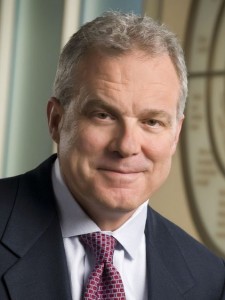As Mark Bertolini contemplated the downhill run, on Feb 18 2004, little did he realize that his life was going to change forever, and that these changes would eventually snowball into something that would change thousands of lives.
Soon Mark lost control and hurtled downhill on his skis at increasing speeds. Ricocheting of a tree he tumbled down a 30 foot ravine. When his daughter eventually found him he was lying motionless in the snow. Five vertebrae in his neck had fractured. Most of the nerves that connected his left arm to the spine had detached. His injuries were so severe that he was read the last rites on the helicopter that took him to the hospital.
For most people these injuries would lead to death or permanent disability and most certainly an end of career. But Mark T. Bertolini is no ordinary person and he was not going to allow these injuries to stop him from progressing his career. To the utter disbelief of his doctors he was able to leave the hospital in 12 days. Less than a month after the accident he was seen giving a presentation at an investor conference!
In about 6 years since his accident he became CEO of Aetna, a 58B fortune 100 company with close to 50,000 employees and 46 Million customers, and in another six months he assumed the role of chairman.
But the turning point for Mark came about a year after his accident. He had spent the year on OxyContin, Vicodin, and Fentanyl and yet found little relief in the burning pain in his arm. He felt as if somebody was burning his arm with a torch all day long. He then turned to alternative remedies and that is when he discovered yoga. His inner turmoil soon turned into inner transformation.
Stunned by the effect Yoga was having on him, he began practicing mindfulness meditation too. Though the pain in his arm continues unabated to this day, he has found that because of his mindfulness training he could prevent the pain from turning into suffering.
Yoga and meditation allowed Mark to work with renewed vigor and played a significant role in his success in becoming CEO and then chairman of Aetna. But when he became CEO he was reluctant to remain silent on the transformative impact yoga and meditation had on his life. He felt emboldened to speak out so that the employees of Aetna should also experience the same benefits that he had.
But he soon met with immediate push back. “Just because you are doing yoga, everyone has to do yoga?” Dr. Reisman, the chief medical officer of the company, told him. But instead of giving up Mark decided to gather data to prove his case. With the help of 239 employee volunteers he started an experiment. One third of the employees would practice yoga, one third would do mindfulness meditation, and one third would act as a control group. At the start of the experiment cortisol levels and heart rate variability were measured. These are common measures of anxiety. And at the end of three months measurements were taken again. When the results came in everybody was stunned! Even Dr Reisman had to concede that, “There was a beneficial effect in participating in these programs.”
Compared to the control group employees doing meditation or yoga saw a significant drop in stress levels as measured by drop in cortisol levels and heart rate variability. In addition a 62 minutes per week of productivity improvement was reported, estimated to be worth $3000 per employee per year! The anecdotal feedback was even more staggering: reports of weight loss, saved marriages, peace at home, and even a case where somebody decided not to end his life!
With results like these Mark quickly rolled out a program for all employees. Under the umbrella of a wellness program yoga, meditation, and other things such as a weight loss program were offered. Participation in these was voluntary but the response has been overwhelming. Close to 80% of the employees have taken advantage of these programs and the results have been fabulous: Healthcare costs dropped 7% in the first year, employees reported 28% reduction in stress levels, 20% improvement in sleep quality, 19% reduction in pain, and the productivity gains continued as before. The stock price has since more than tripled, gains unmatched by any of Aetna’s competitors.
Mark is not stopping here. Since money pressure is the biggest stressor for those on the minimum wage, Mark realized that it made no sense to offer these employees just yoga and meditation. He announced a 33% increase to those on the minimum wage from $12 per hour to $16 per hour.
The trail Mark has blazed shows that health and wellness of its employees is central to any company’s performance. Happy employees translate to happy customers and this leads to stellar stock performance. Mark Bertolini summarizes this in a simple statement, “We should do Meditation and Yoga at work!”
You may also like: Ten Unusual Ways To Do Yoga
Credits: This has been written by Raj Shah and edited by Ketna Shah

